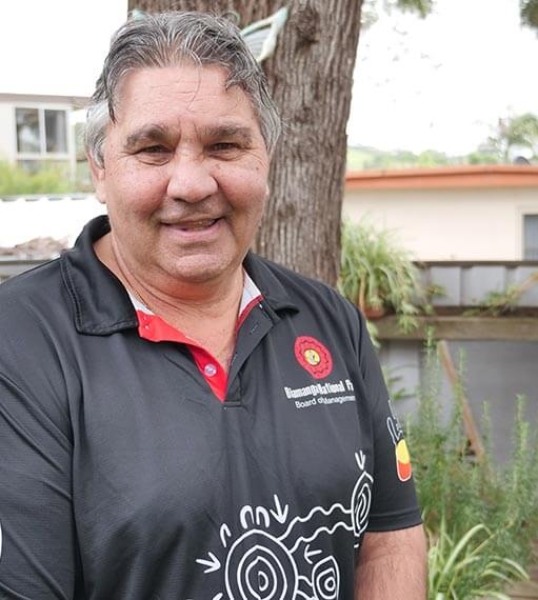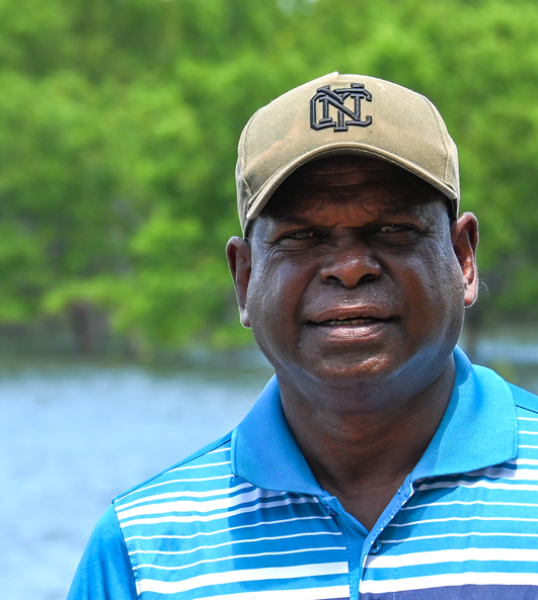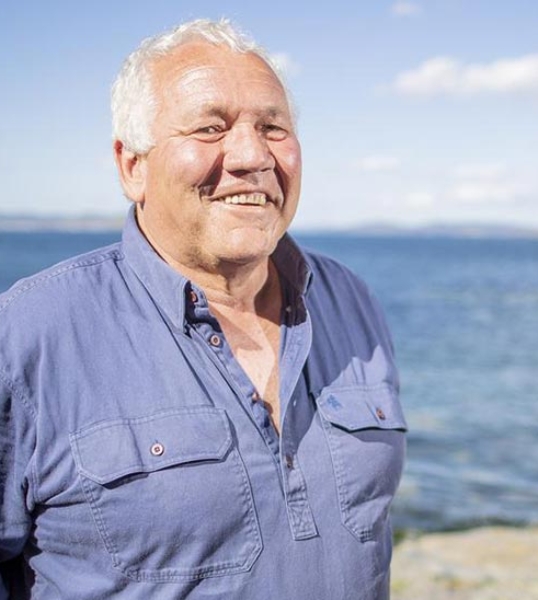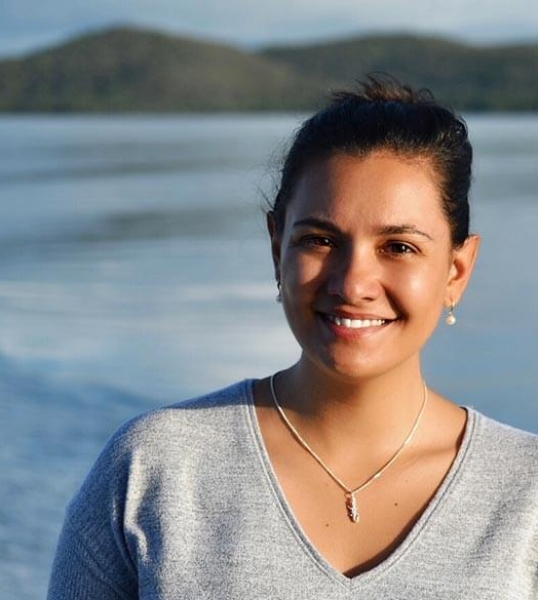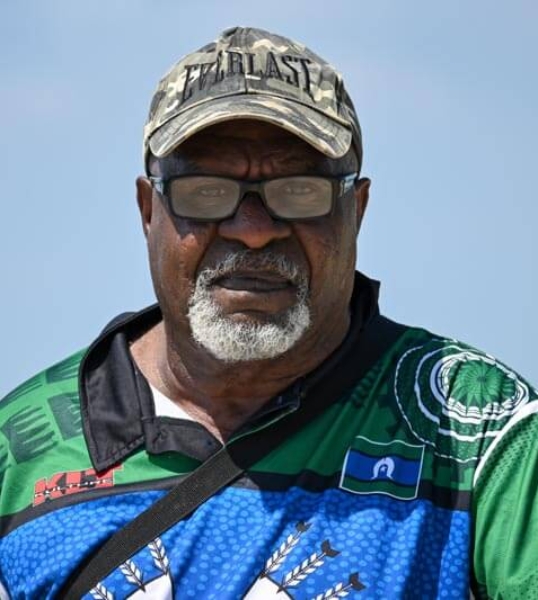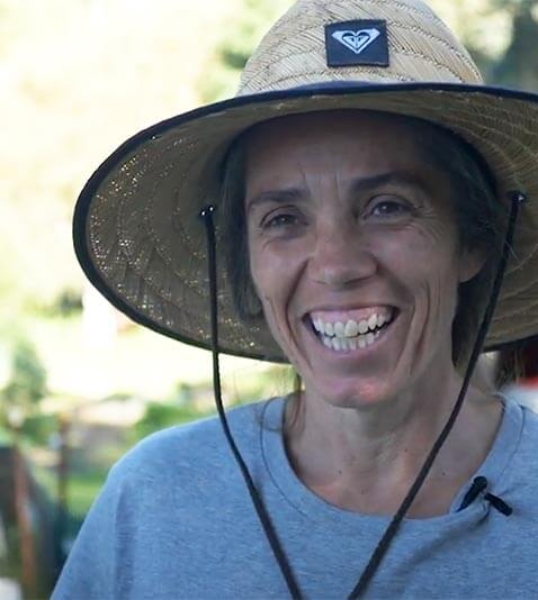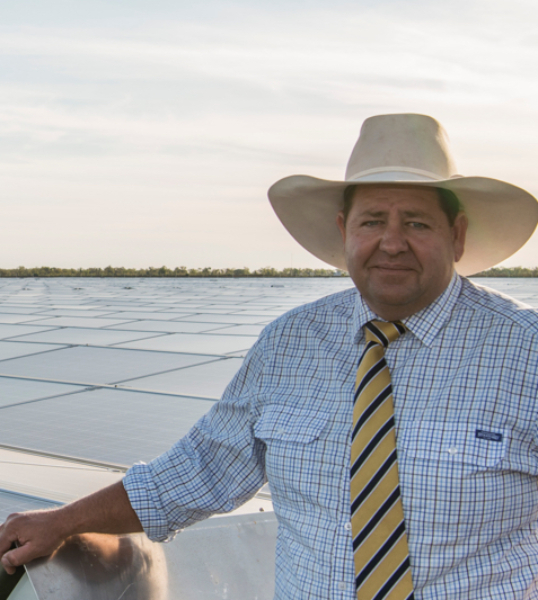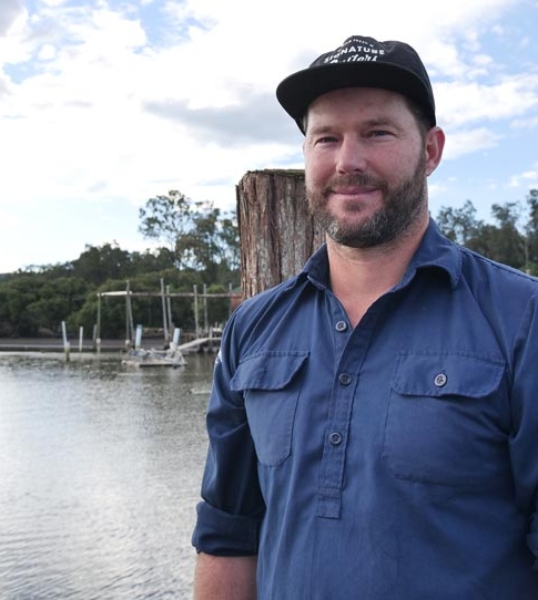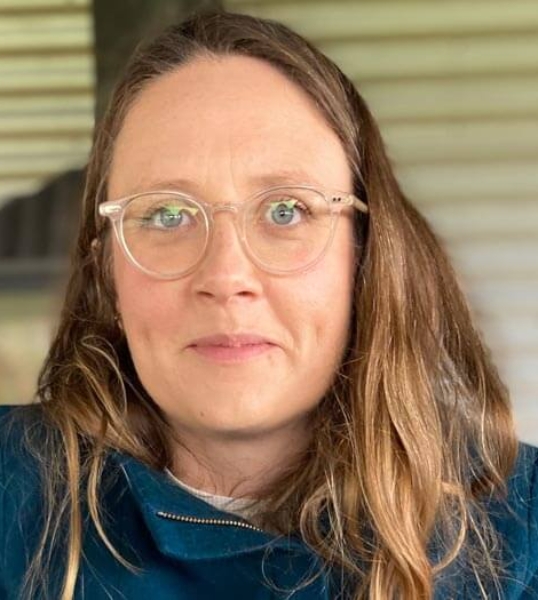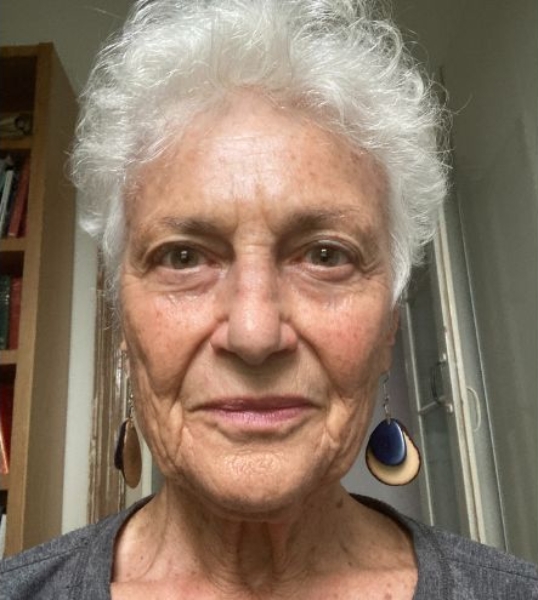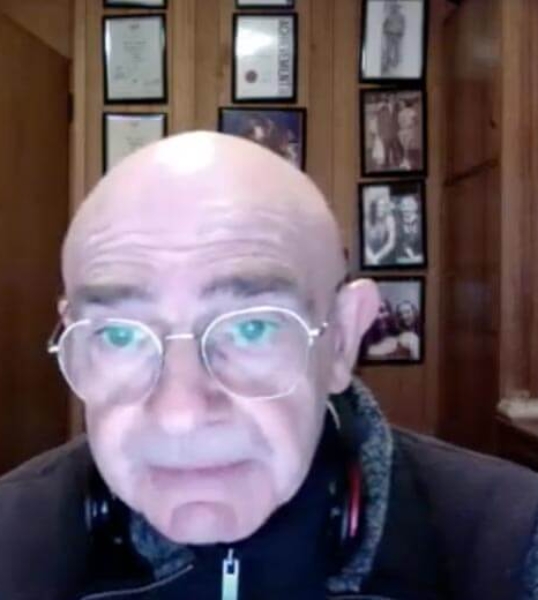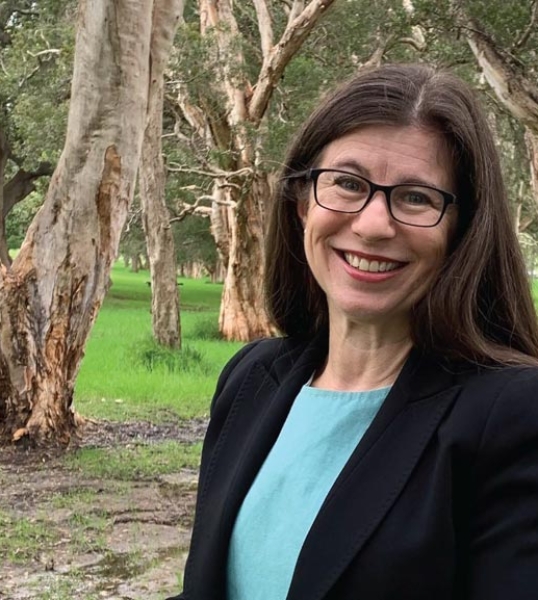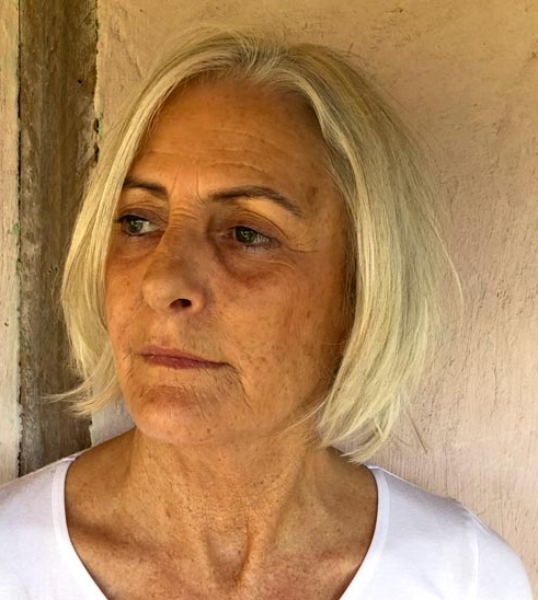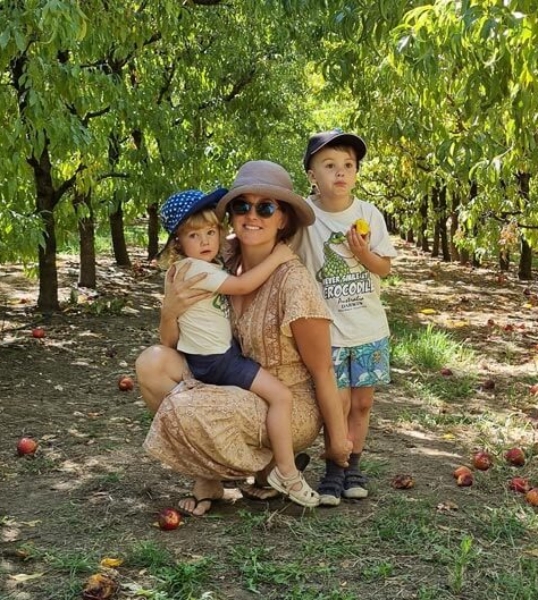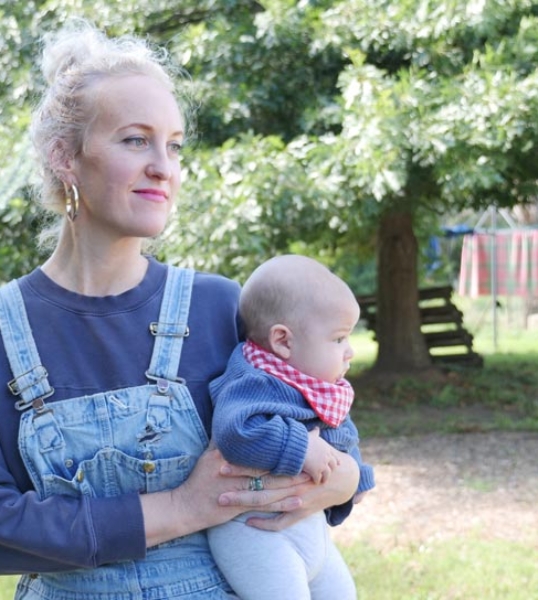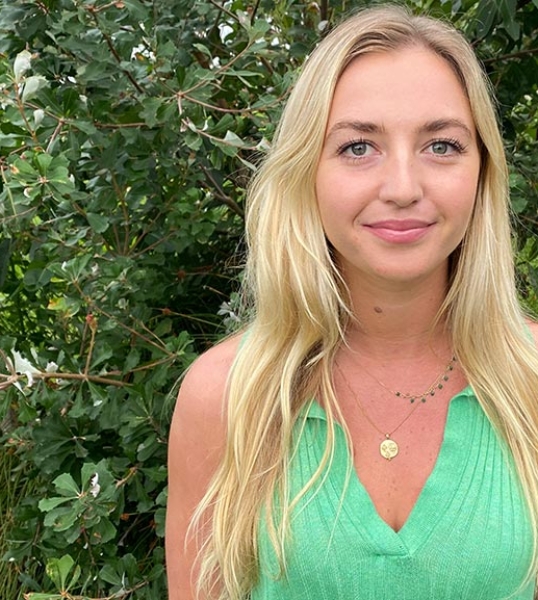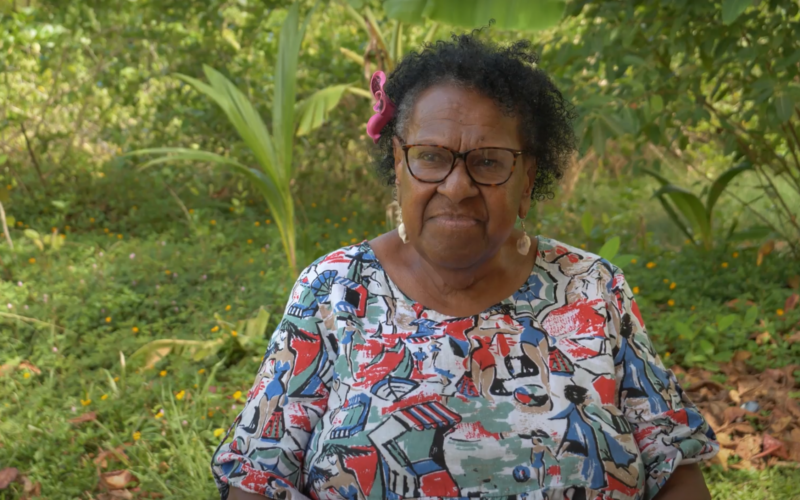
I really strongly support Uncle Pabai and Uncle Paul’s case. I’m proud of them for taking on this task on behalf of our people. I wholly support them and I will continue to support them. They are not doing it for themselves, they are doing it for the betterment of the whole of the people of our islands.
Saibai Island, QLD
My name is Togiab McRose Elu. I was born on Saibai but was raised on the mainland in a place called Sesia, on the coast of Cape York. I now live in Brisbane. I’m a climate activist and advocate and passionate about global warming. I am a climate witness, I’ve witnessed climate change all around the world and even on my own doorstep – this island that I’m sitting on today. I’ve witnessed all of it.
My father left Saibai in 1948 and journeyed to try and get a better place for us to live. They could see climate change happening so they decided to go somewhere else, to Seisia. For a lot of my life I’ve lived in Seisia.
When I started coming back to the island, there were differences every visit. I was talking to my Aunties and Uncles when they were still with us and yarning with them and listening to them. They would tell me stories about their garden patches and everything else and how things had changed.
The shoreline has been a drastic change. It used to be far out beyond where the seawall is now. That’s how much it’s been eroded. There’s more water than land now. I’ve seen the impact on the soil, on the earth. The ground is soaked, it’s too wet. It’s all saltwater. The water comes up when the tide is high, it goes into the garden patches, so you can’t plant anymore. The colour of the leaves on our trees, that’s a huge change. Of course they’re nice and green, but the leaves are eroded, they’re not as fresh as they used to be.
The mangrove, swampy area used to be all freshwater, but it’s no longer there. Years ago, they used to get their canoes over the swamp and carry the freshwater back.
I’ve also noticed the changing colour of the ocean. It’s always been very muddy and shallow here, not like the eastern islands. But the colour of the sea was beautiful. But when I saw it when I came back, it wasn’t very clear. And I’ve never seen seagrass floating on the surface of the ocean like it does now. The seagrass is very important for our seafood. It’s our livelihood. Our seafood is eating the seagrass in the depths of the ocean, so it’s impacting our seafood. Our brothers and sisters and aunties and uncles here now have to go further to catch food. This isn’t just in Saibai, this is everywhere in the Torres Strait.
Our livelihood was based on the oceans and the land. From time immemorial, catching and eating our own seafood has been part of our culture and part of everything. We’ve been taught how to garden and how to hunt. The tinned food from the supermarket that we have now was never around. Everything was fresh, there was no fertiliser in the ground or the ocean. We live and breathe with our food, that’s our lifestyle.
But climate change is doing a lot of damage to our health. Now, the Torres Strait Islander lifespan is very short. We die at early ages – there are all sorts of health conditions – diabetes, hypertension, heart conditions, things like that. I think it’s all in the way we had to change our diet.
It’s gonna be a disaster if we have to leave our island. It’s going to be the downfall of our culture, our heritage, and our identity. We’d be moving people away from here to another place that they don’t know. God has given us this land to live happily and joyfully. We would go to another place where we don’t belong. We would be separated from our ancestors, leaving them behind under the water. We can’t take them with us. I don’t think people will survive easily. You live on the land that traditionally and culturally belongs to you: from the depths of the ocean to the surface of the land. And the people who have given you that authority to live are no longer here. How do we go to the resting place and get them out of there to come with us when the island is under water?
How can we prepare while the land is still here with us? This is not an easy decision. There’s a lot of hard work – we have to look at every aspect of our people moving away. It’s not just packing up your bag and getting on a plane.
The Australian Government has a full duty of care – moral and everything else – to look after us. Our Torres Strait leaders and forefathers have fought for the rights and determination of our people to live happily in the way that they can embrace their culture.
I really strongly support Uncle Pabai and Uncle Paul’s case. I’m proud of them for taking on this task on behalf of our people. I wholly support them and I will continue to support them. They are not doing it for themselves, they are doing it for the betterment of the whole of the people of our islands.
It’s important that we stand together. We must be united: united we fall, united we stand. When we do things collectively in one spirit and one mind and one strength and wisdom, we will achieve it. I’m confident that we will get there.
For everybody out there, whether you’re non-Indigenous or you’re Indigenous or you’re from Saibai or Boigu, come and join us and share stories with us. It’s very important and vital to this movement what we’re doing today. Come join us, let’s join hands together and walk together until we reach our destination.
Hundreds of people from across the country are sharing their stories to send a clear message to the Australian government - it's time for real action on climate change.
Every story appears as a point on this map. Click around to read how climate change is affecting our communities, and add your own story to the map.
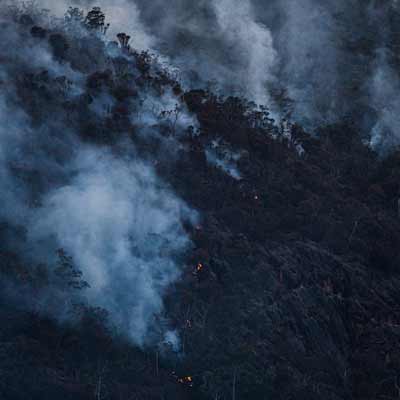
We got a council notice a few years back that our house is in a flood zone! How can that be? On a hill, in a flood zone? In March last year’s rain the house was almost flooded.
Read my storyPeople all across Australia are being harmed by climate change. These are some of their stories.
